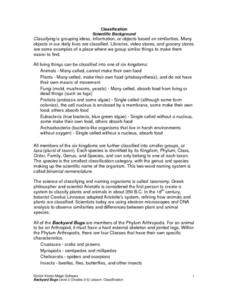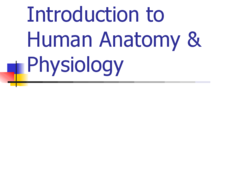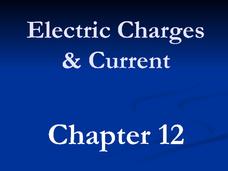Curated OER
Volcanoes: Kindergarten Lesson Plans and Activities
In the pre-lab, kindergarteners mimic the movements of the eruption of a volcano and discover various volcanoes around the United States. Then, pupils sort different types of volcanic rocks in the lab before learning how volcanoes grow...
Curated OER
Earthquakes: Kindergarten Lesson Plans and Activities
Beginning with a pre-lab, kindergarteners trace the letters in the word earthquake and discuss what happens in an earthquake. The lab portion allows young scientists realize that earthquakes trigger shaking of different intensities...
Curated OER
Plate Tectonics: Kindergarten Lesson Plans and Activities
This unit focuses primarily on plate tectonics and plate boundaries surrounding continents. It contains pre- and post-lab sections that walk young geologists through plate movements in order to visualize what's going on inside Earth.
Curated OER
Hazards: Kindergarten Lesson Plans and Activities
The last unit in the series allows kindergarteners to see the dangers and hazards associated with each of the natural disasters learned so far in the series—earthquakes and volcanoes. They listen to sounds associated with the...
Bowels Physics
Electric Circuits
Investigate the construction of the electric circuit with a thorough presentation that provides a solid background for each type of circuit. After introducing key vocabulary, the lesson goes on to explain circuit design.
Casimir Middle School
Biological Classification Worksheet
Classify living things with a set of worksheets that has pupils sorting and indentifying living and non-living things. Learners use the worksheets as a basis for finding their answers.
Space Awareness
Let's Break the Particles
Build learning by breaking atoms! Young scientists study the way energy changes with a hands-on activity. As they roll steel marbles down a ramp, learners test the hypothesis that kinetic energy does not go away with friction...
LABScI
Atomic Structure and the Periodic Table of Elements: The Secret Agent Lab
Food always gets attention! Model atomic structure using fruit loops to represent the subatomic particles. After building models, scholars create ionic bonds using their models. Finally, they use these concepts to create a periodic...
Cold Spring Harbor Laboratory
The RNA Message Is Sometimes Edited
In 1993, Phillip Sharp and Richard Roberts won the Nobel Prize for their discovery of split gene theory. Learn about the breakthrough with the help of an online interactive. Hear both scientists explain it in their own words, watch an...
Cold Spring Harbor Laboratory
DNA Responds to Signals from Outside the Cell
How do cells know when to replicate, transcribe, and stop? James E. Darnell, Jr. shifted from studying medicine to biochemistry and decided to address this mystery. Learn about his research, discoveries, and the impact on future medical...
Cold Spring Harbor Laboratory
A Genome Is an Entire Set of Genes
Today researchers identify a gene suspected of causing a genetic disease in a matter of days rather than years, thanks to the Human Genome Project. Young scientists learn about the Human Genome Project and the scientists who designed the...
Cold Spring Harbor Laboratory
DNA Is Packaged in a Chromosome
Roger Kornberg, the oldest son of two biochemists, won the 2006 Nobel Prize in Chemistry. Learn about Kornberg and his scientific research with an animation, videos, biography, and an applied problem-solving activity. A summary and...
Curated OER
Nuclear Reactions: Fission and Fusion
These nicely designed slides work through the processes of nucelar fission and fusion with very clear, labeled diagrams that almost act as animations when you progress from slide to slide. Facts behind the process are summarized well....
Mr. E. Science
The Periodic Table
This science presentation focuses on the elements in the periodic table. It begins with the parts of an atom, explaining atomic mass and atomic number, valence electrons, and isotopes. Then it moves on to discuss various ways of...
Curated OER
DNA Coloring - Transcription and Translation
In this DNA worksheet, pupils review the transcription and translation processes. Students label and color the different parts of a DNA strand. This worksheet has 7 fill in the blank questions.
Curated OER
Fall 2004 Midterm Exam #1, Parts A & B
First year physics learners show what they know about electric potential, circuits, power, current, and voltage on this midterm exam. It consists of a multiple choice section, some true or false questions, and two multi-step problems to...
Curated OER
Backyard Bugs
Explore the concept of scientific classification and the similarities and differences between plant and animal species. Your class will participate in hands-on activities by investigating dichotomous keys and classifying their shoes. To...
Curated OER
Distinguishing Between Atoms
Every type of question is used to query young chemists about atomic structure. A vocabulary list tops the page before fill in the blanks, true/false, and matching questions are listed. This is a neatly formatted and pertinent activity to...
Curated OER
Nuclear Magnetic Resonance
Eleven slides are used in this PowerPoint to present how nuclear magnetic resonance works and to give learners an opportunity to interpret examples of nuclear magnetic resonance spectra. Ample information is provided, so this is a...
Curated OER
Introduction to Human Anatomy & Physiology
If the only support you are in search of is lists of vocabulary terms, this presentation may fit the bill. Slides simply list terminology. These categories are included: hierarchy of structural organization, cell functions, cell...
Mr. E. Science
Electric Charges and Current
Resistance is not futile, it is voltage divided by current. The presentation goes in depth covering electric charges, conductors, insulators, electric fields, static charges, and circuits. The lesson is the 12th in a series of 26.
Curated OER
Mining Uranium and Nuclear Reactor
In this mining learning exercise, students fill in the blanks to paragraphs about mining uranium and a nuclear reactor. Students fill in the blanks for 17 sentences.
Curated OER
Periodic Trends
Thorough explanations of the trends in the periodic table of elements make up the majority of this handout. Atomic and ionic size, ionization energy, electron affinity, and electronegativity are presented before giving chemistry...
Other popular searches
- Cell Nucleus
- Atomic Nucleus
- Comet Nucleus
- Nucleus Dna Replication
- Nucleus of Cells
- The Nucleus
- Nucleus Radioactivity
- Condensation Nucleus
- Nucleus Discovery
- Chromatin Nucleus
- Nucleus and Human Body
- Nucleus Partners























